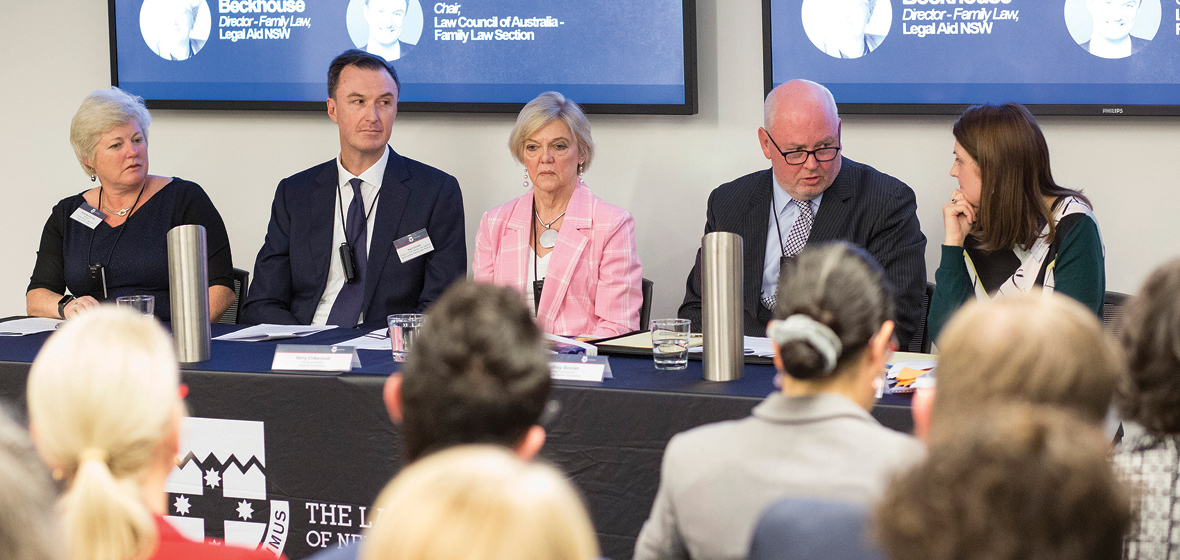A panel of family law experts has weighed in on the recommendations put forward by a national review of Australia’s family law system.
The Australian Law Reform Commission (ALRC) released its report Family Law for the Future: An Inquiry into the Family Law System in April, recommending 60 changes to the family law system in Australia.
One of the most dramatic recommendations was to abolish federal family courts and return the resolution of family law disputes to the states and territories.
But a panel of family law experts at the Law Society of NSW on 14 May said this could have huge implications for the landscape of family law in Australia.
“The recommendation that the states and territories assume adjudication powers for family law disputes would be a seismic shift,” said Paul Doolan, a partner at Barkus Doolan Family Lawyers and Chair of the Family Law Executive of the Law Council of Australia.
“It would reshape the landscape of the family law courts throughout Australia. Even if it gains support, there are enormous funding, structural and political considerations before it could ever be achieved, and it may prove to be a five-to-10-year project. The Law Council is looking closely at whether that is a step in the right direction or not.”
The recommendation that the states and territories assume adjudication powers for family law disputes would be a seismic shift. It would reshape the landscape of the family law courts throughout Australia.
PAUL DOOLAN, Chair of the Family Law Executive of the Law Council of Australia
Doolan spoke to an audience of 100 people at the Law Society’s most recent Thought Leadership event discussing “Family law courts – change for a system in distress”.
FLIP Stream Research Fellow and UNSW Law professor Felicity Bell facilitated the conversation alongside a panel of four experts including Doolan, Kylie Beckhouse, Director of Family Law at Legal Aid NSW, Geoffrey Sinclair, a part-time commissioner at the ALRC, and Kerry Chikarovski, a lawyer, author and board member of Our Watch.
The ALRC report, which was tabled in Parliament by Attorney-General Christian Porter in April, advises changes to how parenting orders were made, and questions whether judges should be required to start by considering a default position of equal shared care by both parents – as the current law proscribes. It also suggests a range of recommendations to address the increasing prevalence of family and domestic violence matters entering courts alongside family law matters.
“Legal Aid data tells us that domestic violence is a feature of 80 per cent of the family law matters we act in,” said Beckhouse.
“We are becoming much better at identifying domestic violence and responding to it … We were pleased the ALRC recommended a continuance of the Family Advocacy and Support Services, providing integrated duty representation and social support services for families affected by family violence.”
The report also recommended the Australian Government work with state and territory governments to develop a “national information-sharing framework” for courts to consider information relevant to family law, family violence, and child protection matters in cases involving domestic violence.




